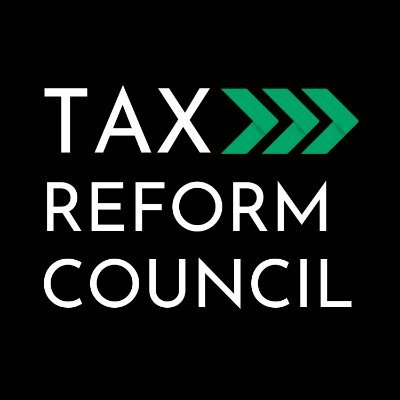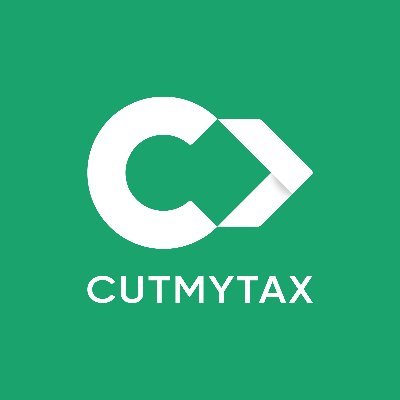“Among the many other questions raised by the nebulous concept of ‘‘greed’’ is why it is a term applied almost exclusively to those who want to earn more money or to keep what they have already earned — never to those wanting to take other people’s money in taxes”
Thomas Sowell
The Tax Reform Council seeks a system of taxation that encourages greater economic growth and places a lower burden on individuals and businesses. Among their activities they run the ‘Cut My Tax’ campaign. We speak to Max Young about the Council.

Max thank-you for your time.
Can you tell us what the Council does and your role in it?
The Council advocates for lower taxes. It wants to inform the public why lower taxes are better for all of us and it aims to send our politicians a strong message to that effect. I’m the Council’s administrator, so I liaise with our board, advisors, and analysts, as well as keeping the website and social media running and up to date.
“we want to engage people and, ultimately, let MPs know that tax hikes won’t fly with the public.”
You have the ‘Cut My Tax’ campaign. What are you aiming to achieve and how can people get involved?
Yes, Cut My Tax is the campaign arm of the Council. So far its strongest presence is on Twitter where we post analysis of tax news, threads, article summaries et cetera. It seems that, despite all of the fantastic work that think tanks, journalists, consultancies and others are producing on tax, there isn’t a real thrust of outreach to the public. The Council wants to make it a lot easier to learn about tax policy and get a sound take on contemporary tax issues. Most content on tax is, let’s face it, pretty boring – so we want to engage people and, ultimately, let MPs know that tax hikes won’t fly with the public.
To that effect on our website we run letter campaigns that anyone can sign on to, have a comprehensive resource bank of reports on tax (it was difficult to find many of these before), a quotes section, and a blog. As the operation grows there will, we hope, be more direct activity for campaigns.
How did you first get involved in the campaign to reform taxes?
Our advisory board members and our senior advisors have been fighting the fight for decades. For what it’s worth, I found Milton Friedman’s eighties TV series “Free to Choose” in my teenage years and have been working in anti-tax advocacy since.
“There seems to be a strange unshakeable belief among bureaucrats and the commentariat that people will happily absorb high taxes without changing their behaviour, which is obviously not true”
We’re great believers in the Laffer Curve, what are your thoughts on how lower tax rates can affect tax take?
There are many many examples of the Laffer Curve in action. We posted some of our favourites from around the world on our blog a little while ago. JFK is a great and relatively little-known example, he slashed income tax at all levels in 1963 (though the highest was 91% at the time) and revenues shot up. We see the same trend everywhere – Lord Lawson’s cuts in the eighties, Canada in the nineties, France in the mid-noughties. There seems to be a strange unshakeable belief among bureaucrats and the commentariat that people will happily absorb high taxes without changing their behaviour, which is obviously not true. The Curve is a useful means of explaining that.
Are there any taxes you’re more in favour of or against than others? What’s your preference for how the government raises income?
DC’s tax-cutter in chief Grover Norquist put it well: “What Mae West said about sex is true about taxes. All tax cuts are good tax cuts; even bad tax cuts are good tax cuts.” Aside from that, the supply side trumps all, of course, and we should organise tax policy accordingly. Say’s Law from 1803 still holds up: goods are ultimately paid for with other goods, so any tax arrangement must first and foremost prioritise production. This is why it is so sad to see Sunak and Hunt slowly heap earth on any prospect of growth for the coming years. There was an encouraging article in the FT by Stuart Kirk some weeks ago on why corporation tax in a sane world would be lowered to 0%. We’re some way off having a fruitful conversation on that but it’s where we should be. We don’t love any taxes, but if the government wants to raise income it should (1) Respect the Laffer Curve and (2) Raid the supply side at its peril.
“This was a once-growing and dynamic part of the economy that’s now being dragged kicking and screaming into arbitrary employment status by successive IR35 reforms”
If you could introduce a couple of immediate changes to the tax system, what would they be?
Cut the tax code down to size. As your readers likely know it is the longest such document in the world by quite some way – Proust’s “À La Recherche Du Temps Perdu” is 1.26 million words and the UK’s tax code is eight times longer than that. A shorter tax code can be achieved, unsurprisingly, by scrapping whole taxes. Any tax system has to KISS (Keep It Simple, Stupid) to encourage investment, confidence, ease of interaction, and avoidance of hair-pulling. Hong Kong’s and Georgia’s are worth emulating.
Other than that, it would be great to see some changes to HMRC’s treatment of the self-employed and especially freelance contractors. This was a once-growing and dynamic part of the economy that’s now being dragged kicking and screaming into arbitrary employment status by successive IR35 reforms and forced to use leech-like “umbrella companies” to manage their relationship with companies that use them.
Do you have any last thoughts you would like to share with our readers?
We are living in disheartening times to be sure – taxes at their highest since Attlee and likely to get higher, productivity and growth kicking the bucket et cetera, but this is no cause for despair. The facts are always on our side and we will succeed against stale ideas and soulless managers of decline.

You can find out more at their website at https://www.taxreformcouncil.org/ and the ‘Cut My Tax’ site at https://www.cutmytax.org/. They are also on Twitter at https://twitter.com/TaxReformUK and https://twitter.com/CutMyTaxUK.

